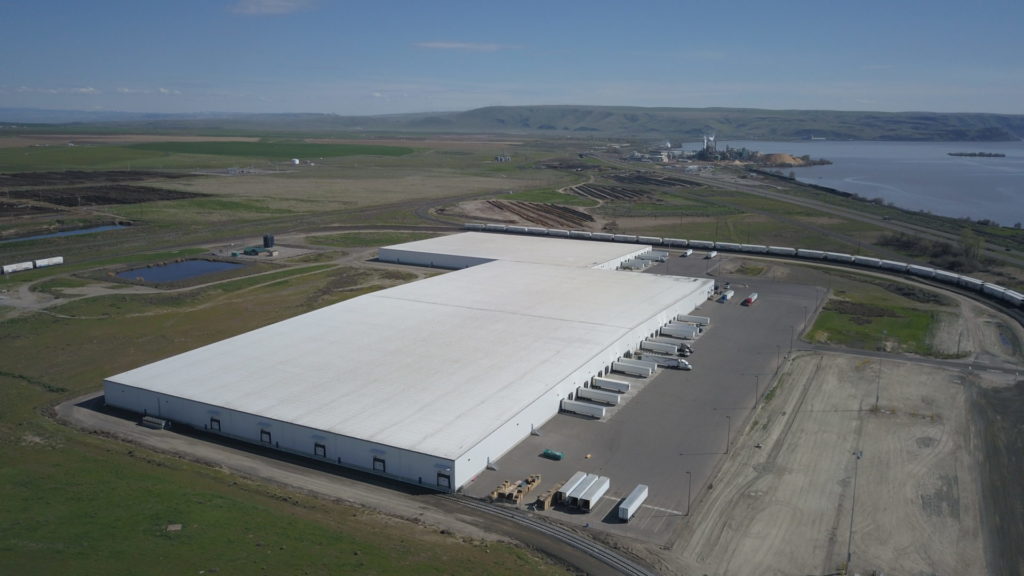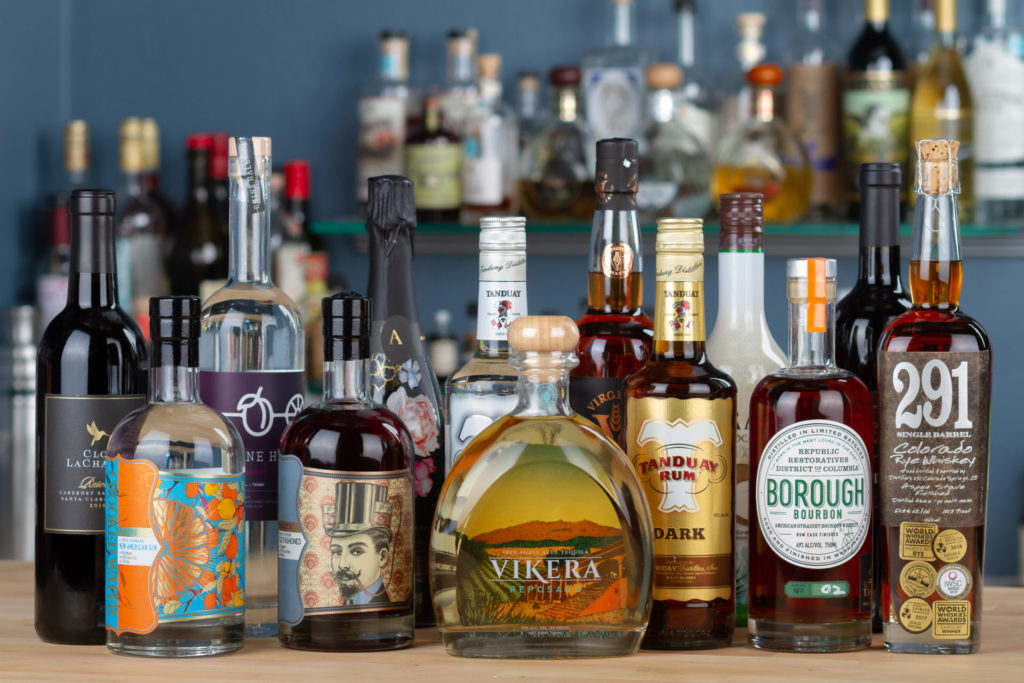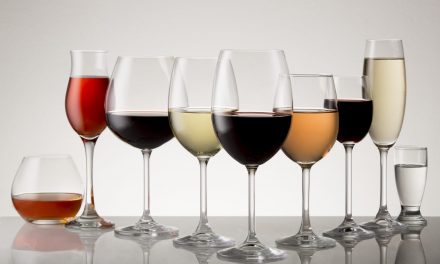Getting bottles into the hands of consumers has always been the bread and butter of wineries, distilleries, and distributors, but in 2020, the job got a little harder. As they endured lockdowns, sanitized their work places, and upgraded their websites, producers were also forced to focus increased attention on moving their products through the last mile, and innovative suppliers stepped up to help.
“I think we’re going to be left with a completely different looking industry,” says Bobby Burg, senior vice president – operations and chief supply chain officer for Southern Glazer’s Wine & Spirits, reflecting on 2020’s disruption. In the early weeks of the pandemic, some 30 percent of Southern Glazer’s accounts—bars and restaurants—were not active. By the end of the year, he says, only 50 percent of accounts were active (compared to 2019).

“I think we’re going to be left with a completely different looking industry.” —Bobby Burg, Southern Glazer’s Wine & Spirits
As consumers drank more at home, off-premise sales strengthened, demanding some health and safety adaptations. Southern Glazer’s, a massive distributor serving 250,000 different accounts from 42 distribution centers across the country, quickly implemented a business continuity plan. It includes drive-and-drop deliveries and electronic invoices with touchless confirmation, keeping Southern Glazer’s employees safely on customers’ loading docks and out of their buildings.
Perhaps more important, though, Southern Glazer’s was already a step ahead in e-commerce, an area that blossomed in 2020. Three years ago, Burg says, the company began developing a digital platform called Proof. It launched in 2019 and is now available in 28 U.S. markets. Using Proof, buyers can search and order online, track shipments and payments, and take advantage of consumer-style features like ratings, reviews, food pairings, and cocktail recipes.
If any bright spots grew out of the pandemic, e-commerce might be the shiniest—particularly for the spirits industry, where online sales became a lifeline. Winemakers know this marketing method well. Often, small- and medium-sized wineries might struggle to find traction with large distributors, but maintain healthy wine clubs and consumer orders via their websites. For many, direct-to-consumer sales have always outweighed off-premise markets such as retail stores, bars and restaurants.
That basket of challenges—small production, and limited exposure beyond the tasting room—also afflicts craft distilleries, but without the relief of DTC sales via e-commerce. Liquor sales across the country are just one leg in the federally mandated three-tier distribution system, where producers must sell through a distributor, who then sells to a retailer, who sells to the final consumer. There are exceptions, but in most states, direct sales to consumers outside a tasting room are verboten.
Managing DTC Shipments
In 2016, Cheryl Durzy launched LibDib, a distribution platform that works equally well for wine and spirits producers, both large and small. She started the company as a response to challenges her family’s winery suffered working with distributors.

Cheryl Durzy launched LibDib as a response to challenges her family’s winery suffered working with distributors.
As LibDib took off, Durzy soon found an even stronger market with spirits producers. Her company is a licensed distributor operating in California, Florida, Illinois, Colorado, New York, and Wisconsin, representing 35 percent of alcohol consumption in the United States. Makers’ products are catalogued on LibDib’s website. A retailer—“buyer,” in LibDib parlance—orders online; LibDib creates the shipping label and sends it to the maker to complete the delivery. All transactions before the final delivery are a combination of virtual and warehoused, depending on the at-rest laws of the state in which the buyer is located. Orders may be as large as a truckload, Durzy says, but resellers also have the ability to purchase just a few bottles at a time. For online retailers and their patrons, the world of craft distilling is at their fingertips.
Ryan Lang, co-founder and partner of Middle West Spirits in Columbus, Ohio, uses platforms for commerce solutions, such as LibDib for on- and off-premise sales, Greenglass Global for national account solutions, and Speakeasy e-commerce for DTC. “DTC is relatively new to us as a brand, although we’ve been working on that avenue,” he says. “It opens a whole new channel for us. To be able to have customers who can order direct in Texas, Colorado, or Maine improves our reach. Having a clearing house or warehouse where that can be managed becomes paramount for smaller distilleries.”
Online sales may be thriving during the pandemic, but deliveries still must be physical. Beverage producers choose between several different methods of managing their less-than-truckload DTC shipments. Many producers handle the work in-house. Abacela Winery in Roseburg, Ore., produces around 12,000 cases of wine per year, and nearly half of it is sold directly to consumers through the wine club and tasting room. All of its shipments, says general manager Gavin Joll, are packed by Abacela employees, and often include a newsletter, tasting notes, or a promotional item such as a t-shirt or corkscrew.
“We like to be the last ones to touch the package, to make sure everything is right before it goes out,” Joll says.
Navigating Regulations
Larger producers also see benefits to controlling their warehousing and shipping. In Michigan, St. Julian Winery and Distillery has more than 100 different items available in-store and for shipping DTC.
Most of that moves out of its six tasting rooms around the Lake Michigan Shore area, but 30 percent is packed and shipped internally. “We have a full-time shipping department,” says company president John Braganini, “so it’s not a sideline [operation].”
Many other producers opt for specialized help. Wineshipping is the largest DTC logistics provider for alcoholic beverages, providing critical tools for storage, transport, and order fulfillment. Headquartered in Napa Valley, Calif., the company has a national presence with 2.6 million square feet of warehouse space across five strategic regions.
Copper Peak Logistics focuses on small- to medium-sized wineries that seek the company’s “white glove services,” according to COO Milton Cornwell. As much as 65 percent of Copper Peak’s business is wine club shipments, with significant increases in ecommerce order activity since the onset of the pandemic. Its two warehouses, one in American Canyon, Calif., and the other in St. Louis, Mo., let the company segmentshipments: Anything destined for the east side of the Rocky Mountains ships from the Midwest, while the California facility services the western United States.

“The changes in consumer purchasing behavior that occurred during the pandemic will undoubtedly remain for some time.” —Milton Cornwell, Copper Peak Logistics
However, getting the product out the door and across state lines involves more than simply loading a truck. It also means navigating a web of licensing and taxation regulations that differ from state to state and, in some cases, even from county to county.
During the COVID-19 crisis, it’s imperative for brands to reevaluate and find cost-saving solutions in every sector of the supply chain. Elenteny Imports was founded during the 2010 financial crisis, and its core services, such as LCL (less than container load), were offered as a way to help customers during periods of unrest.
Elenteny offers a modern approach to wine, spirits, and beer distribution, and is helping domestic and global companies navigate the three-tier system by guaranteeing all of the details between initial order and final sale.
When restaurants closed due to COVID-19, Elenteny helped its clients by holding orders that were in motion and, in some cases, quickly returned them to the producers. Once a client made a sale, Elenteny shipped the inventory from the destination and delivered it to the U.S. retail customer, which helped eliminate the expense of additional warehousing. More important, Elenteny found the most efficient shipping routes and handled all the logistics so its clients could focus on relationship building and sales.
Self-service Here to Stay
California wineries have long appreciated the benefits of outsourcing compliance services, but it’s less familiar to winemakers in Washington state, where direct-to-consumer wine sales lag behind both California and Oregon, according to the 2018 Direct to Consumer Wine Shipping Report.
In eastern Washington, Vickie Stone operates a two-pronged company that helps wineries manage their growing e-commerce sales, along with the taxes and permits required by each state they ship to; WCS also does federal reporting and new winery applications. She launched Winery Compliance Services in 2007, compiling monthly reports for clients of sales and taxes due in every state. Ten years later, she added Winery Fulfillment Services, moving her offices into a 70,000-square-foot, temperature controlled warehouse in Walla Walla, where the company is licensed as a bonded winery and a bonded cellar. She works with wineries producing anywhere from 500 to 50,000 cases per year. WFS stores clients’ inventory, then packs and ships as it’s purchased. Unlike other fulfillment services, it holds the permits for out-of-state shipping so winery clients don’t have to.

Vickie Stone operates a two-pronged company that helps wineries manage their growing e-commerce sales, along with the taxes and permits required by each state they ship to.
WFS combined services have seen 30 percent growth every year—it jumped to 70 percent in 2020, due to the pandemic, and the turn to online shopping—says General Manager Kylie Sheckler. Distributors often can’t (or won’t) pick up orders from smaller wineries like those dotting the Walla Walla Valley, so a warehousing fulfillment service in a centralized location can be very attractive, she explains. “Keeping our clients compliant is a vital part of our company,” she adds. “We work together with Winery Compliance Services to offer a compliant service for shipping, while enabling our clients to grow their direct to consumer business.”
Northwest Wine Services operates on a slightly different model. The 760,000-square-foot temperature-controlled facility in Wallula, Washington serves as a storage warehouse for Ste. Michelle Wine Estates, which owns 28 different wineries and maintains partnerships with 14 more. Northwest Wine Services packs shipments for distributors and also has the ability to process wine club and e-commerce shipments. Specialized services include anything from packing promotional items to applying labels that deter counterfeiting.
Export shipments require particular attention, says Senior Vice President Jim Kleist. “If [an order] is going to Germany, for example they don’t pay attention to the U.S. surgeon general’s warnings regarding alcohol and pregnancy. Each country usually has its own specific label that has to be affixed to a bottle of wine, so we open every case, pull every bottle out, apply a certain label, and inspect it all. We take the final look before anything goes into a box going overseas.”
Accuracy is essential, he adds: “If you ship one case [less than the allowed limit], it’s going to get delivered. If you ship one case over, it’s smuggling.
“The innovation here is that this is a storage warehouse also offering third-party logistics. This is an ever-evolving industry. You need to offer as many value-added services as possible—and be open and ready for what’s coming down next.”
The industry will probably continue to feel the effects of the 2020 pandemic into the foreseeable future. Despite the bump in DTC sales in the last year, Kleist points out that wine consumption has leveled as millennials and the Gen Z market mature and move to higher quality wines. Distribution services will mature with them, he predicts. “Most likely, a lot of wineries will go from higher volume to higher premiumization,” he says. “For warehousing, that means less volume. If we can offer multiple services, and do it for 20 or 15 hours a day, we can be much more efficient.”
At Copper Peak Logistics, Cornwell expects e-commerce to thrive, even after the coronavirus is thwarted. “The changes in consumer purchasing behavior that occurred during the pandemic will undoubtedly remain for some time. A big portion of the population is going to be hesitant to go back to normal anytime soon, so online sales and self-service pick-up will continue to gain attention and traction.”














